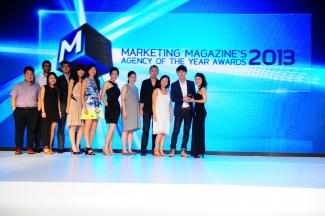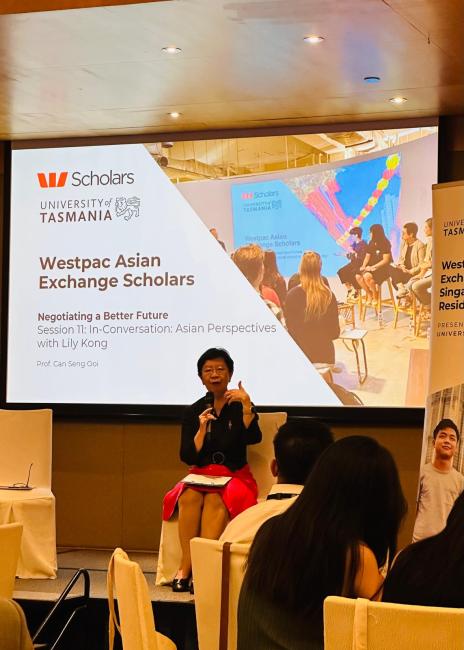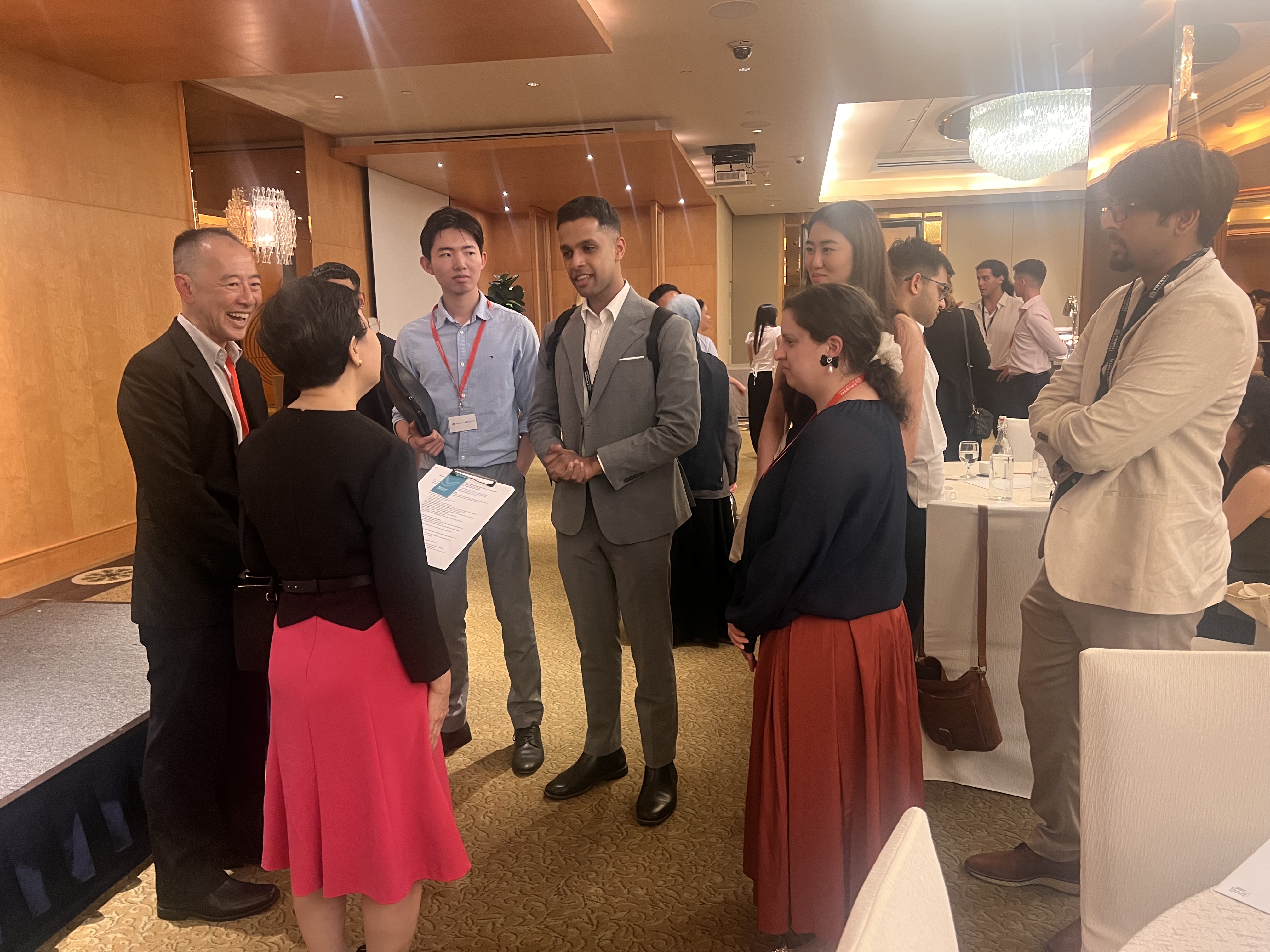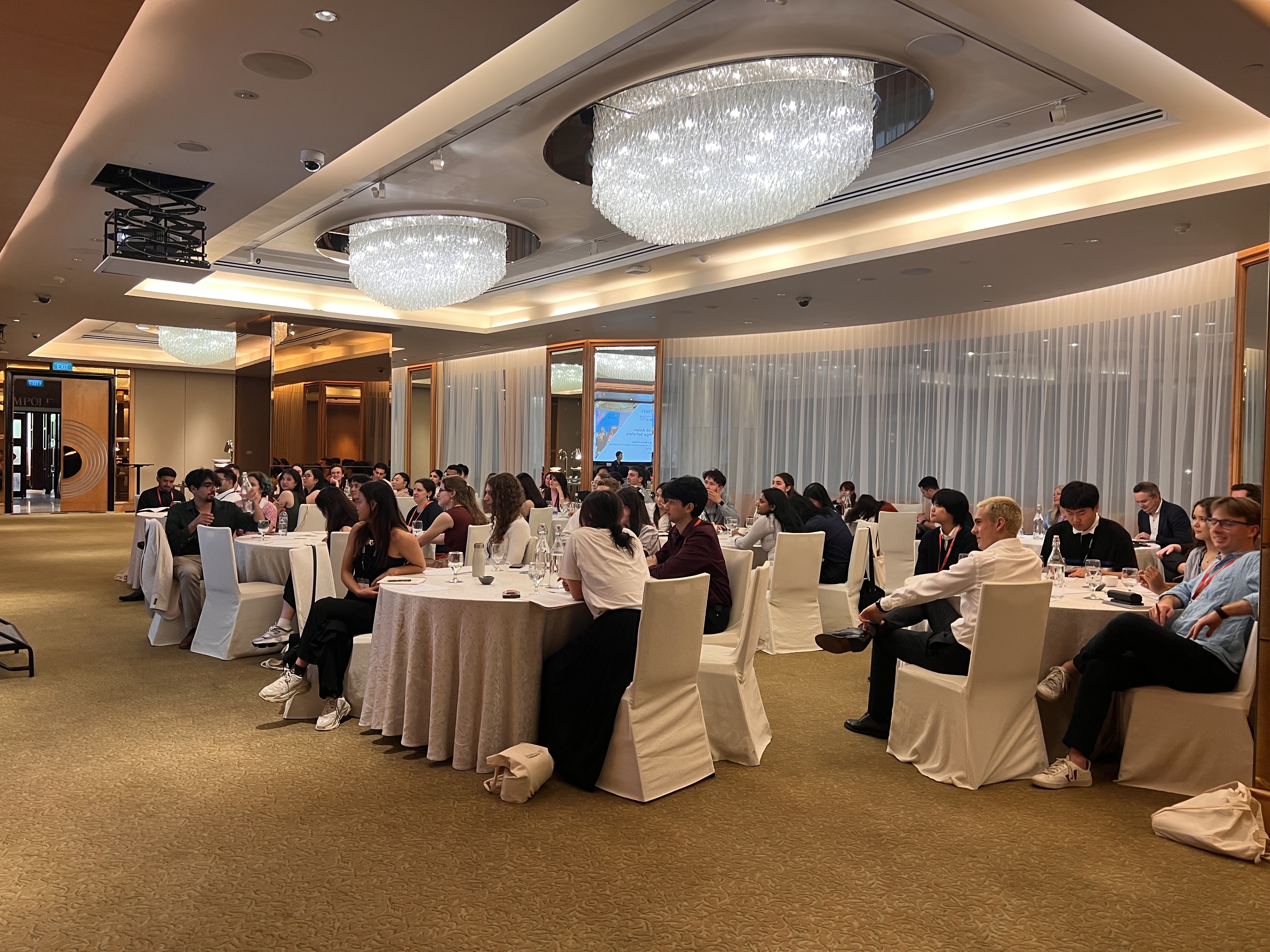
Against a backdrop of shifting geopolitical dynamics and deepening regional complexity, SMU President Professor Lily Kong spoke to a room of Australian scholars gathered under the Westpac Asian Exchange Scholarship and New Colombo Plan. The panel session, held at Hotel Jen Tanglin on 22 July, as part of the scholars’ leadership residential in Singapore, offered a candid and layered perspective on Asia’s evolving place in the world. One that moved beyond economic forecasts and strategic plans, and towards questions of culture, connection, and co-creation.
Reframing the “Asian Century”
Moderated by Professor Ooi Can Seng from the University of Tasmania, the conversation opened with a question that has lingered since the 1990s: has the long-anticipated “Asia-Pacific Century” materialised? Reflecting on that optimism, Professor Kong noted that the reality has proven more complex.
“Yes, Asia contributes nearly half of global GDP and has led in innovation, trade, and poverty reduction,” she said. “But this is not Asia’s century, nor America’s, nor any single region’s. We now live in a world of parallel ecosystems and strategic ambiguity.”
She pointed to the diverse trajectories within Asia itself — referencing the rise of the Four Tigers (Singapore, South Korea, Taiwan, and Hong Kong), alongside the differing growth models of China, India, Vietnam, and ASEAN more broadly. “There is no monolithic Asia Inc.,” she added, “but a constellation of histories, systems, and ambitions.”
Strategy and Sensibility
A key theme that emerged throughout the session was the importance of sensibility — of attunement to cultural nuance and lived realities. “Working with Asia,” Professor Kong shared, “is as much about sensibility as it is about strategy. Policy can only take us so far. What truly matters is how we build trust, read nuance, and engage meaningfully.”
Several scholars asked thoughtful questions about this — how best to prepare for their exchange experiences, how to contribute meaningfully, and how to navigate cultural difference. Professor Kong affirmed the value of immersion. At SMU, she noted, global exposure is a graduation requirement. Whether through semester-long exchanges, short-term language immersion, or internships in regional cities, students are encouraged to step beyond the familiar.
“There is no substitute for lived experience,” she said. “That’s how we move from transactional knowledge to deep understanding.”
She also invited the scholars to consider returning to Singapore as part of their academic journeys. Especially for those interested in business, economics, political science, or the social sciences, Prof Kong warmly said, “we would be very glad to welcome you to SMU!”

Beyond Trade: Co-Creation and Shared Futures
Throughout the dialogue, Professor Kong emphasised that partnerships in Asia must extend beyond trade flows and investment statistics. Drawing on examples from Singapore’s joint ventures in Suzhou and Andhra Pradesh, she advocated for co-investment models that generate shared benefits to local communities and foreign partners alike.
“It is not enough to consult, advise, or export. True partnership requires co-creation — where both parties contribute, and both gain,” she said. This principle, she added, applies equally to educational and research collaborations, particularly in areas such as climate action, digital innovation, and sustainability.
Her remarks echoed ideas explored in a recent commentary, “A Rose or a Unicorn?”, in which she argued that ASEAN’s future depends on moving from transactional connectivity to emotional community — a regional identity built not only on infrastructure and platforms, but on shared narratives and values.
Geography, Identity, and the Singapore Story
Responding to a question from a fellow geographer, Professor Kong offered a brief but illuminating reflection on Singapore’s development through the lens of geography. From its location at maritime crossroads to its reliance on human capital, she traced how the city-state’s compactness had shaped both its vulnerabilities and strengths.
“Singapore’s smallness is its sharpest edge,” she observed. “It forced us to think globally, invest in education, and remain agile.”
That perspective, she added, continues to inform SMU’s educational mission — one that seeks to develop globally minded, regionally engaged graduates who are not only academically capable but socially attuned.

On Language, Culture, and Belonging
Scholars' questions returned often to the theme of identity: how can the region sustain cultural diversity while nurturing a shared sense of belonging? One scholar asked how Singapore’s multilingualism has shaped its regional engagement; another raised the challenge of balancing openness with heritage preservation.
Prof Kong acknowledged the tension, but affirmed that cultural diversity need not preclude common purpose. “Language is more than a tool of communication — it carries metaphors, histories, and beliefs,” she said. “And in diversity, we do not seek uniformity, but solidarity.”
She noted that at SMU, platforms such as ICON (International Connections) bring together students from across the region and beyond, offering low-barrier opportunities for cultural exchange. “These may seem like small things,” she said, “but they are often the starting point for deeper, more meaningful conversations.”

Dining Hall Lessons
In a more personal moment, Prof Kong reflected on her time as a PhD student in London. “You always knew where the Singaporeans were in the dining hall,” she said with a smile. “We huddled in the same corner — it felt safe. But real growth began when we stepped out of that corner.”
Her advice to the scholars was simple but resonant: start conversations, join in local life, and be generous in sharing one’s own perspective. “Sometimes, our students need a nudge too,” she added. “You might be that nudge.”
Closing Reflections
The session concluded on a reflective note. Thanking the students for their engagement, Prof Kong shared that she rarely has the opportunity to be in the classroom but always values the chance to learn from young people.
Her parting message: “Walk with curiosity, commitment, and care. The world doesn’t just need smarter leaders—it needs wiser, kinder ones too.”